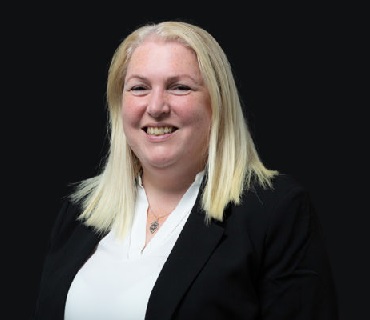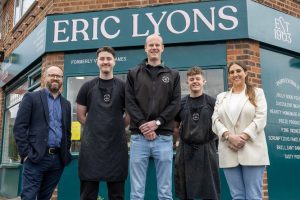Coming up for air: Investing in a post-pandemic world

Working with businesses to bring forward investment during the pandemic proved challenging for private equity houses.
With restrictions lifted, a new raft of challenges and opportunities have made themselves clear.
Here, Sandy Reid, deputy fund principal, MEIF, Mercia Asset Management, explains that the markets are now more active than ever.
“Surprisingly, the disruption of the last two years on business investment has been more limited than you’d expect, I think the very initial stages of the first lockdown at the beginning of the pandemic in 2020, investors did become incredibly distracted.
“So we spent a lot of time working with both the CEOs and the CFOs of all of our portfolio businesses to replan and scenario plan as they went through the pandemic, because at that point, we had no idea how long it was going to last what the problems were going to be.
“We all had to go out with doomsday scenarios for for every business to make sure that they were prepared for what might come. As we all settled into the rhythm of the pandemic, actually, it we then had some time to start thinking about new investments and and we did continue to invest.
“So I think after that first quarter, at the beginning, where there was some disruption, I think, business not quite as usual, but still very active and doing everything remotely, which was new for us – it’s the first time we’ve done due diligence, for example, without actually ever visiting a company site. But everything was possible.”
Reid says that investing still continued as demand stayed reasonably strong throughout the lockdowns, but that with the final lifting of restrictions, Mercia found that the markets were incredibly active with a lot of businesses out there looking for investment.
Mercia’s strengths pre pandemic were with technology and life sciences, among others, which really came to the fore once the first lockdown hit.
Reid says: “I think we did have a handful of business like many investors that got real COVID tailwinds behind them, as you pointed out in the life sciences sector, but some software businesses as well.
“And we didn’t have a lot of exposure to those sectors that were particularly hard hit. So we whilst we do have some b2c companies in the portfolio, as you point out, most of them were b2b. And it’s not been, you know, an easy time for some of the companies and there are lingering issues, I think supply chain problems, not just in early stage venture backed businesses, but across the whole of the SME sector still continue to cause significant difficulties. And the one that’s at the top of the risk register for most businesses that I know, is staff retention and recruitment. You know, it seems incredibly difficult at the moment to get highly qualified staff into any business.”
Asked what the appetite is businesses at the moment for growth, whether people are shedding themselves of the caution of the last couple of years, Reid says: “Every sector has its own approach and every management team has their own approach, you have to remember because I work investing in early stage venture, these are the entrepreneurs and the management teams that are more comfortable risk taking than perhaps in more traditional industries and large corporations.
“So we’ve seen as I said before, a real steady stream of interest in raising venture capital.
“But then the war in Ukraine is having an impact as well and we’re we’re not quite sure what the fall out from that will be.
“Ultimately, is there going to be an impact? For example, is money coming into the market? So I think people have become more comfortable with the idea that things do go on macro economically, you know, the pandemics actually open people’s eyes, eyes to the idea that it’s not always going to be stable and steady.
“And for the entrepreneurs that doesn’t tend to put them off, you know, they’re the people who want to go out there have a real passion for their business, excited about what they want to do. And they’re naturally more inclined to take a risk. So, like I said, our demand for venture capital investments definitely held strong.”
Which sectors are particularly ripe at the moment and performing strongly?
“Well, it’s interesting, I think it’s the same sectors that you see in traditionally doing well in with VC investment. And across the Midlands, we always find that there’s a good selection of software businesses, but also life sciences, manufacturing, you know, they’re the bedrock of businesses in the Midlands. And so we see our fair share of those types of businesses as well.”
Over the last 10 years or so, the speed of growth of early stage businesses has become phenomenal. Businesses have gone from back bedroom to almost household names. Because things are moving so fast how important is it that that you are in the region and aware of these businesses from very early on?
“Well, so as an early stage investor, yes, you want to find these businesses early. And the only way you’re going to do that is if you’re if you’re on the spot to find them. The other advantage of those really well known examples, those fast growing examples is they really demonstrate that there’s value to be had. And that’s what investors everywhere are looking for. They’re all looking to show that you can make a return from the investments that you’re doing. And that’s something you have to keep in mind, whether your original investing or London investing is that that your ultimate goal is to make a return for your clients.
“And so those really strong examples starting to come out of the regions, you know, they grab all the headlines do demonstrate that it’s that that value is there to be had. And the interesting one is that some of the really valuable businesses don’t have those big brand names and maybe aren’t as well known. And that doesn’t make them any less successful. So it’s about championing across the board, not just the ones that are very well branded. And you know, Gymshark have done a fantastic job, but the whole of the Midlands space is not Gymshark, if that makes sense.
On the year ahead, Reid says: “Well, so we’ve still got plenty of investing to do from the Midlands Engine Investment Fund, and the other funds this year.
“And so I’m always excited because you have to be as a venture investor, because every new opportunity that walks through the door could be the next really exciting thing for you to work with.
“I find the ongoing part of our job actually really exciting. And it really suits my personality, because it means I get to do different things every day, and look at different businesses, different sectors and work with different management teams.
So I don’t think there’s any one thing that’s really exciting. It’s just that ongoing, finding those new innovative businesses because that’s what gets you work every day to go out and invest as a venture investor. You always think “Well, today might be the day that I find something really exciting to invest in.”










